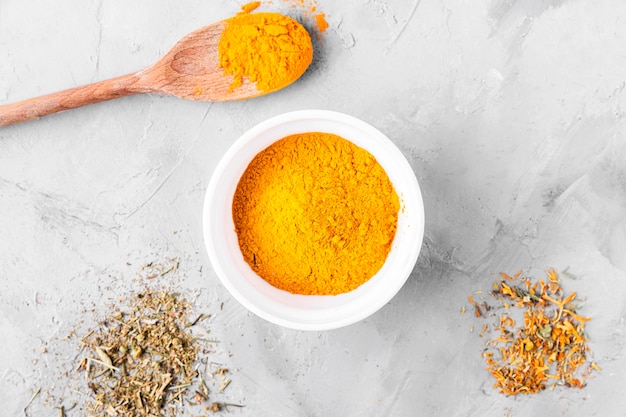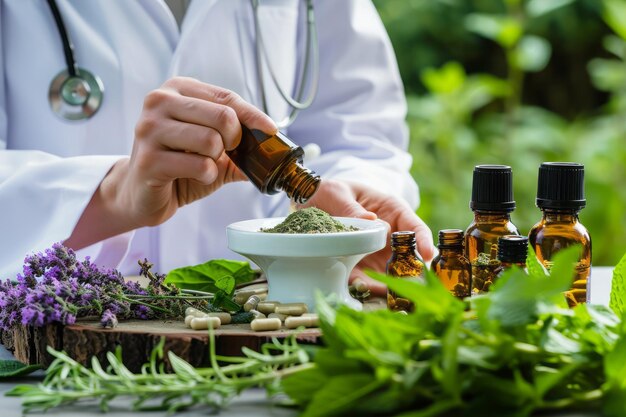Ask Ayurvedic doctor a question and get a consultation online on the problem of your concern in a free or paid mode. More than 2,000 experienced doctors work and wait for your questions on our site and help users to solve their health problems every day.
Ayurvedic Treatment for Bartholin Cyst – Natural Remedies for Relief and Healing

Introduction to Bartholin Cyst and Ayurvedic Treatment
A Bartholin cyst is a fluid-filled sac that forms in the Bartholin glands located on either side of the vaginal opening. These glands are responsible for secreting fluid that lubricates the vagina, but when the duct becomes blocked, a cyst can form. If infected, it can lead to pain and swelling, known as a Bartholin abscess. While conventional treatments often involve antibiotics or surgical drainage, Ayurveda offers natural and holistic treatments that aim to address the root cause of the cyst, reduce inflammation, and promote healing through diet, herbs, and lifestyle changes. Ayurvedic remedies aim to balance the body’s doshas and restore the health of the reproductive system.
Don't wait or self medicate. Start chat with Doctor NOW
Historical Roots & Ayurvedic Significance
In Ayurveda, the formation of cysts is often attributed to an imbalance in the Kapha dosha, which governs lubrication and structure. Blockages in the body’s natural flow of fluids, combined with excess heat or stress, can contribute to the formation of cysts. Ayurveda emphasizes the importance of maintaining the balance of doshas, enhancing detoxification, and restoring harmony to the body to treat Bartholin cysts. Ayurvedic treatments focus on internal purification, reducing inflammation, and improving circulation to support natural healing.
Key Components & Therapeutic Benefits
1. Herbal Remedies for Bartholin Cyst
Ayurveda uses a variety of herbs with anti-inflammatory, antimicrobial, and detoxifying properties to manage and treat Bartholin cysts:
- Turmeric (Curcuma longa): Known for its powerful anti-inflammatory and antimicrobial properties, turmeric helps reduce swelling and prevent infections. It can be taken internally as a supplement or applied topically to the affected area.
- Neem (Azadirachta indica): Neem is a potent herb with antibacterial, antifungal, and anti-inflammatory properties. It helps treat infections, reduce inflammation, and promote healing.
- Shatavari (Asparagus racemosus): Often used to balance female hormones and support reproductive health, Shatavari helps reduce inflammation and supports the healing of the Bartholin glands.
- Ashwagandha (Withania somnifera): Known for its adaptogenic properties, Ashwagandha helps reduce stress, balance the immune system, and improve overall reproductive health.
- Guduchi (Tinospora cordifolia): This herb is a potent immune booster and detoxifier. It helps balance the doshas and can aid in reducing inflammation and infection.
2. External Ayurvedic Therapies for Bartholin Cyst
In addition to internal herbs, external treatments in Ayurveda can help alleviate the pain and swelling associated with Bartholin cysts:
- Sitz Baths with Epsom Salt or Turmeric: Taking warm sitz baths with Epsom salt or turmeric helps reduce inflammation and improve blood circulation. The warm water helps to drain the cyst naturally, providing relief from pain and discomfort.
- Herbal Poultices: A poultice made from herbs like turmeric and neem can be applied to the affected area to help reduce swelling and infection. The poultice helps draw out toxins and provides local relief.
- Warm Compresses: Applying a warm compress to the cyst area can help reduce pain, promote drainage, and soothe inflammation.
3. Dietary Recommendations for Bartholin Cyst
In Ayurveda, diet plays a significant role in managing health conditions, including Bartholin cysts. Foods that balance the Kapha dosha and promote detoxification are recommended:
- Anti-inflammatory Foods: Include turmeric, ginger, garlic, and fresh fruits and vegetables to reduce inflammation and support the immune system.
- Hydrating Foods: Drinking plenty of water and consuming hydrating foods like cucumbers, watermelon, and coconut water helps improve circulation and detoxify the body.
- Avoiding Kapha-Aggressive Foods: Avoid heavy, oily, and sugary foods that can increase the Kapha dosha and contribute to fluid retention and blockages.
4. Lifestyle Modifications for Managing Bartholin Cyst
Along with herbs and diet, lifestyle changes are essential in Ayurveda to promote overall health and healing:
- Stress Management: Reducing stress through practices such as meditation, yoga, and deep breathing helps restore hormonal balance and prevent the recurrence of Bartholin cysts.
- Regular Exercise: Moderate physical activity like walking or yoga can improve blood circulation, support detoxification, and promote overall reproductive health.
- Avoid Tight Clothing: Wearing loose-fitting clothing, especially in the genital area, can help prevent additional irritation and support natural healing.
How Ayurvedic Treatment Works for Bartholin Cyst
Ayurvedic treatment for Bartholin cysts works by addressing the underlying imbalances that cause the cyst’s formation. By balancing the Kapha dosha, improving circulation, and enhancing detoxification, Ayurvedic remedies help reduce the size of the cyst and prevent infection. Herbs like turmeric and neem reduce inflammation, while Shatavari and Ashwagandha support overall reproductive health and balance the hormonal system. The combination of internal herbs, external therapies like sitz baths, and lifestyle modifications work together to promote healing, reduce symptoms, and prevent recurrence.
Choosing the Right Ayurvedic Treatments & Guidance
When considering Ayurvedic treatment for a Bartholin cyst, it is essential to:
- Consult Certified Ayurvedic Practitioners: Personalized treatment ensures the remedies are suitable for your specific health condition and doshic balance.
- Ensure Quality Herbs: Choose organic and high-quality herbs to maximize the therapeutic effects and ensure safety.
- Source from Reputable Vendors: Purchase Ayurvedic products from trusted pharmacies or practitioners to ensure proper formulation and efficacy.
Recommended Dosage & How to Use Ayurvedic Remedies
The dosage and application of Ayurvedic remedies depend on individual health conditions and body constitution. Here are some general guidelines:
- Turmeric: 1/2 to 1 teaspoon of turmeric powder can be taken with warm water or milk, once or twice a day.
- Neem: Neem leaves can be boiled in water and consumed as a tea, or Neem oil can be applied topically to the affected area.
- Shatavari: 1 teaspoon of Shatavari powder can be taken with warm water, once or twice a day.
- Sitz Bath: Add 1-2 tablespoons of Epsom salt or turmeric powder to warm water for a sitz bath, and soak for 10-15 minutes daily.
Always follow the recommended dosage as prescribed by an Ayurvedic practitioner.
Potential Side Effects & Precautions
While Ayurvedic treatments are generally safe, there are a few precautions to consider:
- Allergic Reactions: Test herbal remedies for any allergic reactions before use. Discontinue use if irritation or adverse effects occur.
- Pregnancy & Nursing: Pregnant or nursing women should consult an Ayurvedic practitioner before using any remedies.
- Underlying Conditions: If you have existing medical conditions or are on medication, consult with a healthcare provider before starting Ayurvedic treatments.
Frequently Asked Questions For Ayurvedic Treatment of Bartholin Cyst
What is a Bartholin cyst and how does it form?
A Bartholin cyst forms when the duct of the Bartholin glands becomes blocked, leading to a fluid-filled sac. It may become painful and swollen if infected, leading to a Bartholin abscess.
How can Ayurveda help in treating a Bartholin cyst?
Ayurvedic treatments address the root cause of the cyst by balancing the Kapha dosha, improving circulation, and reducing inflammation. Herbs like turmeric, neem, and Shatavari help reduce the size of the cyst and promote healing.
Are there any specific herbs recommended for Bartholin cysts?
Turmeric, neem, Shatavari, Ashwagandha, and Guduchi are commonly used in Ayurvedic treatments for Bartholin cysts due to their anti-inflammatory, antibacterial, and detoxifying properties.
How can I apply Ayurvedic remedies to the Bartholin cyst?
Ayurvedic remedies for Bartholin cysts can be applied both internally (herbal supplements, teas) and externally (sitz baths, herbal poultices). Warm compresses or herbal poultices can be used to reduce swelling and pain in the affected area.
Can a Bartholin cyst be treated naturally in Ayurveda without surgery?
Yes, Ayurveda offers natural remedies that can reduce the size of the cyst, alleviate pain, and prevent infection. However, if the cyst becomes infected or does not improve with natural treatments, medical intervention may be necessary.
How long does it take for Ayurvedic treatments to work on Bartholin cysts?
The duration of treatment depends on the severity of the cyst and the individual’s response to the remedies. Consistent use of Ayurvedic remedies for 1-3 weeks can often help reduce swelling and promote healing.
Is there any prevention for Bartholin cysts using Ayurveda?
Prevention involves maintaining a balanced diet, managing stress, avoiding tight clothing, and practicing regular hygiene. Ayurvedic herbs like Shatavari and Ashwagandha can help support overall reproductive health and prevent cyst formation.
Conclusion & Expert Insights
Ayurvedic treatment for Bartholin cysts provides a natural and holistic approach to managing the condition. By balancing the doshas, improving circulation, and reducing inflammation, Ayurveda offers effective remedies to shrink the cyst, prevent infection, and support the health of the reproductive system. Consistent use of Ayurvedic herbs, external therapies, and lifestyle adjustments can promote natural healing and long-term wellness.
References & Further Reading
- Lad, V. (2002). Ayurveda: The Science of Self-Healing.
- Sharma, P.V. (1995). Ayurvedic Healing: A Comprehensive Guide.
- Journal of Ayurveda and Integrative Medicine for research articles on Ayurvedic treatments for cysts and reproductive health.



